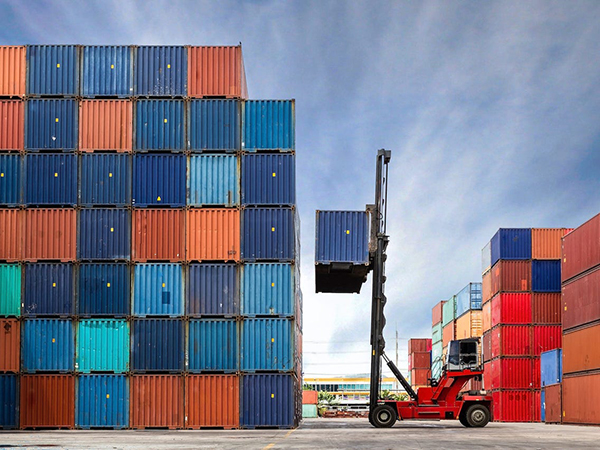The global supply chain is in a state of flux, but AI may hold many of the keys in helping to build resilience.

By Sandeep Bhogaraju, Client Partner, Fractal Analytics
The global supply chain is as stressed as it has ever been. From driver shortages to containers piling up at ports, what was already an incredibly tense situation for the supply chain has gotten even more strained. And the conditions are only set to get worse as the holiday season hits full swing and government officials around the world admit that a return to normal could still be a long way off.
Due to the COVID-19 pandemic, supply chain organizations were already considering ways to modernize their supply chains as they struggled to keep up with demand. This led many supply chain organizations to hit fast forward on their digital transformation efforts — specifically when it came to addressing how they were going to make their operations more resilient. And current developments have served as a stark reminder about the importance of having adaptable supply chains.
The supply chain and logistics industries have been notoriously slow moving in technology adoption and implementation in the past. However, given the current state of affairs, supply chain organizations have begun to make significant strides in their technology infrastructure with AI emerging as a go-to tool. With that said, in order to get the most out of these new tools, and meet resiliency goals, supply chain organizations need to have a clear strategy in place.
Here are a few ways in which AI can help supply chain organizations become more adaptable and agile as we head into the holiday season and beyond.
The COVID-19 pandemic has illustrated just how perilous its reliance on a handful of suppliers and regions can be. With areas such as China and other countries still experiencing varying degrees of lockdown and social distancing regulations, the supply chain is still in a highly volatile period. Therefore, supply chain organizations have begun to look for ways to diversify their sourcing in a way that is much more resilient and “disruption proof.” This is where AI comes in.
Predicting the upcoming risks is an important aspect in Supply Chains to be resilient. Switching from one supplier to another is far easier said than done. However, with the help of AI, supply chain professionals cannot only predict the risks in advance and gain better insight into their current sourcing operations, but can quickly shift gears to alternate suppliers and options if a sudden disruption occurs. Additionally, supply chain organizations can adapt their logistics plans in tandem so that their entire production and distribution operations can remain online with minimal headaches.
Given how quickly the supply chain world evolves today, the more proactive and dynamic an organization can be, the better. Even before the COVID-19 pandemic began to take hold, the supply chain industry was incredibly competitive, with the industry in a seemingly perpetual cycle of consolidation. Therefore, as times have gotten even more cutthroat, the need for supply chain organizations to be able to anticipate potential disruptions has become essential. Unfortunately, many supply chain organizations have struggled to become more prescient as they continue to rely on outdated technology — such as Excel spreadsheets and other manual methods — that do not give them the timely insights they need to make savvy decisions. Enter AI.
Through AI adoption, organizations can significantly bolster their data processing and synthetization capabilities. With these tools in place, organizations can then enable their decision-makers / demand planners to not just make better choices in the moment but allow them to make incredibly accurate forecasts based on both current and historical data. Thus, organizations can prepare for any eventuality that might come their way.
Even though a lot of the blame seems to be getting laid on the doorstep of ports and sea freight, the entire supply chain is having its share of issues. Today’s intermodal supply chain is as hectic and interconnected as it has ever been. Therefore, managing it appropriately without sophisticated tools is almost impossible. However, with AI and automation, governing supply chain operations becomes much, much, easier.
Furthermore, in addition to just day-to-day management, AI makes it easier for companies to derive better value. For example, thanks to AI’s ability to deliver real-time insights, shippers can easily capitalize on any instances where capacity may open up and provide more cost savings. Thus, if air freight capacity suddenly opens up and saves shippers a few hundred dollars per load versus rail, shippers can easily tweak their plans to jump on available savings.
The supply chain world is going through an incredibly strenuous period that will likely result in major institutional change throughout. And by adopting emerging technology early, supply chain businesses can become immediately more efficient today while also putting themselves in position to outperform their competitors tomorrow.

Sandeep Bhogaraju is a Client Partner at Fractal Analytics and works with clients on transforming supply chains to improve efficiency across S&OP, reduce costs across manufacturing, logistics and sourcing.
Scott Ellyson, CEO of East West Manufacturing, brings decades of global manufacturing and supply chain leadership to the conversation. In this episode, he shares practical insights on scaling operations, navigating complexity, and building resilient manufacturing networks in an increasingly connected world.